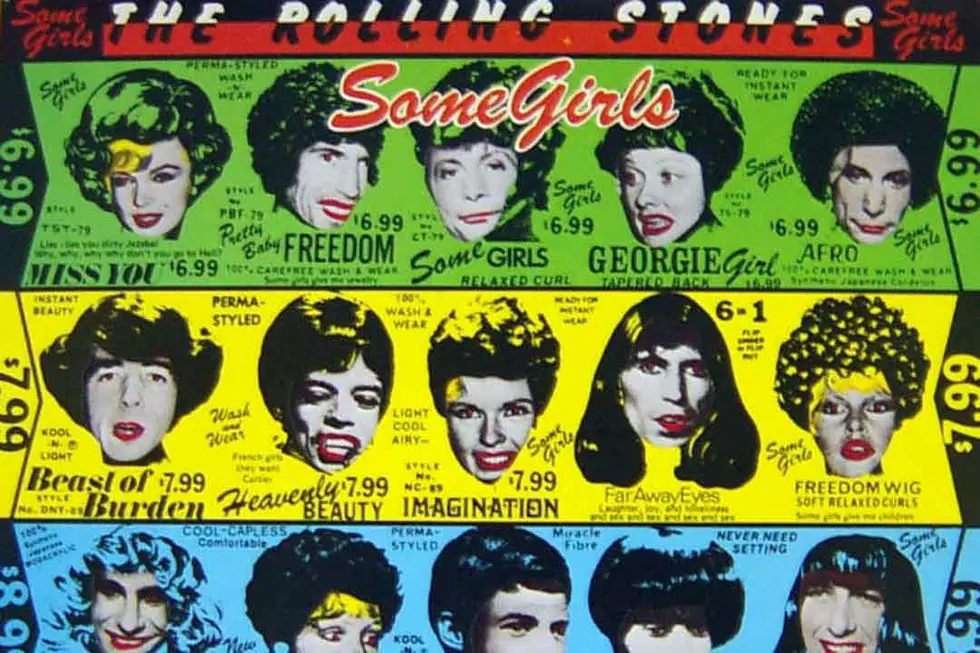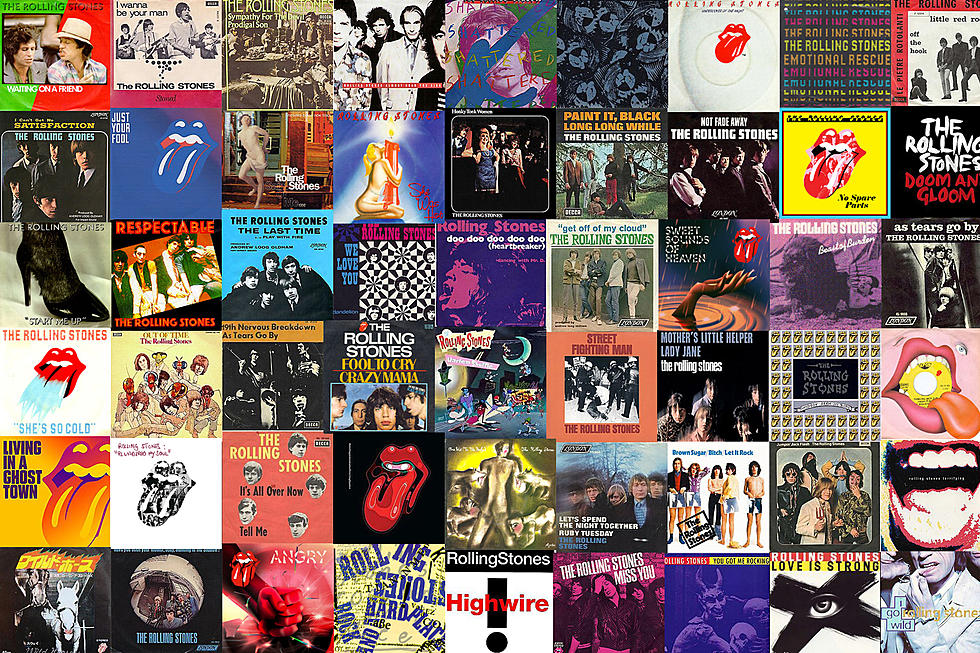
45 Years Ago: The Rolling Stones Come Roaring Back With ‘Some Girls’
The Rolling Stones entered 1978 pinned in by disco on one side and punk on the other, stuck in a creative rut that led some critics to proclaim they were yesterday's news and facing the loss of guitarist Keith Richards to an extended prison sentence. They needed a rebound, and got it with Some Girls.
Released on June 9, 1978, Some Girls found the band reinvigorating their sound by drawing on popular trends of the day without losing its own identity in the process. The record incorporated elements familiar to longtime Stones fans, and offered a nod to the past with a cover of the Temptations' 1971 hit "Just My Imagination (Running Away With Me)," but it also infused the group's staid sonic aesthetic with disco rhythms and a dash of jagged punk aggression.
In exchange, critics rewarded the Rolling Stones with some of the best reviews they'd seen in years, and fans turned "Miss You," "Beast of Burden" and "Shattered" into Top 40 hits.
Mick Jagger looked back on the creatively moribund period leading up to Some Girls during an interview with Rolling Stone: "Everyone was using drugs, Keith particularly. So I think it suffered a bit from all that. General malaise. I think we got a bit carried away with our own popularity and so on." Laughing that "it was a bit of a holiday period," he credited his time in New York City with giving him the musical shot in the arm he needed, saying it added "an extra spur and hardness."
Where a lot of acts in their position might have been threatened by punk's spiteful ascension, Jagger found himself drawn in. "Of course, there was the punk thing that had started in 1976. Punk and disco were going on at the same time, so it was quite an interesting period," he mused. "New York and London too. Paris – there was punk there. Lots of dance music. Paris and New York had all this Latin dance music, which was really quite wonderful. Much more interesting than the stuff that came afterward."
Watch the Rolling Stones' 'Miss You' Video
"Without a doubt, the punks certainly made us sort of look around and say, 'Oh my God, we've been around for 10 years already!'" Richards later told Yahoo!. "The energy of the punk thing affected Some Girls in many ways. The only trouble with the punks is none of them could really play! I loved the attitude, y'know, but where's the music? And that was their letdown. But otherwise, it was a matter of attitude more than anything else, it was about energy."
"Miss You" gave the band a major hit, but its disco sound also alienated a portion of their fan base. "There were a lot of people that were very narrow-minded about it," Jagger admitted. "To me, I wasn't brought up on rock music so much as blues and soul music, and a lot of that music was dance music. It was specifically made to dance to. ... You don't really play the grooves of yesteryear when you make records, you play the grooves of now. And that sort of beat was the thing that was going around at the time. For some people, it was a very big hit, but not everyone liked it."
Richards added: "Purists of any kind really piss me off. Of course, there are some who are gonna think this or that. But that's their privilege, it's cool with me. Not everyone's gonna get it the first time."
Also contributing to the band's revitalized sound was the full-time addition of guitarist Ron Wood, marking his first album after officially replacing the departed Mick Taylor in 1976. (He only appeared on part of Black and Blue.) An adept slide player, Wood added an extra texture to the Some Girls sessions – and experienced a touch of musical culture shock after his years with the Faces.
"Going straight into the Rolling Stones' world at the time was a completely different experience for me, in that I had never worked so intensely before on a project," Wood later explained. "The Faces, for instance, we would go in and everyone would be jangling their car keys immediately in the studio. There was a dedication to actually cut the track, but once that was over, it was like 'Well, let's go then.'"
Listen to the Rolling Stones' 'Beast of Burden'
As it happened, Wood's interplay with Richards became one of the record's highlights, but things could have turned out very differently. As the band geared up for Some Girls, Richards found himself at the center of a legal drama stemming from his 1977 arrest for heroin possession. Although he ultimately received a suspended sentence, accepting a deal that required him to play a pair of benefit shows, the threat of imprisonment weighed heavily during the sessions, even inspiring the album's "Before They Make Me Run."
"It's pretty autobiographical," Richards told the Associated Press. "I was feeling a little hounded, so I think it came out of feeling that. I was on the run, basically. Very few countries would accept me at the time."
Fortunately, acceptance wasn't something the Rolling Stones needed to worry about in the period immediately following the release of Some Girls, which topped the Billboard chart and went on to sell more than six million copies, sparking a fresh round of hit records (including 1981's Tattoo You) and bestselling tours.
The remainder of the following decade was notable mainly for personal conflicts between Jagger and Richards – as well as a handful of forgettable records that included 1986's Dirty Work. But Some Girls proved that when they put their minds to it, the Rolling Stones were still capable of earning the title of the World's Greatest Rock 'n' Roll Band.
The Albums That Almost Killed Their Careers
Real-Life ‘Spinal Tap’ Stories: Rolling Stones
More From Ultimate Classic Rock









